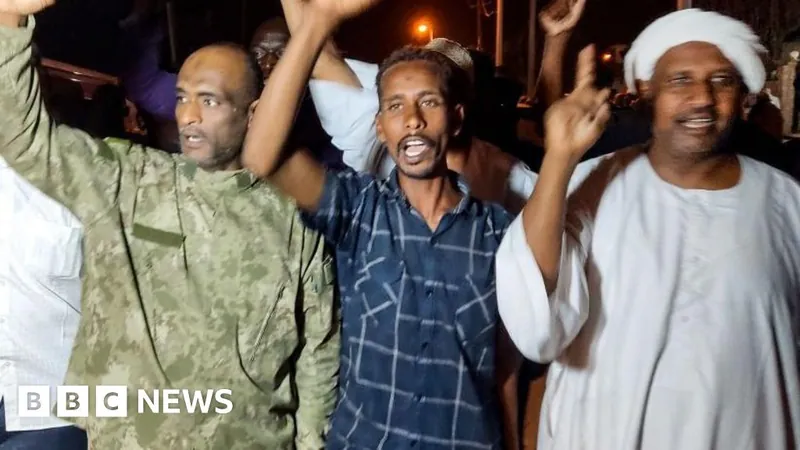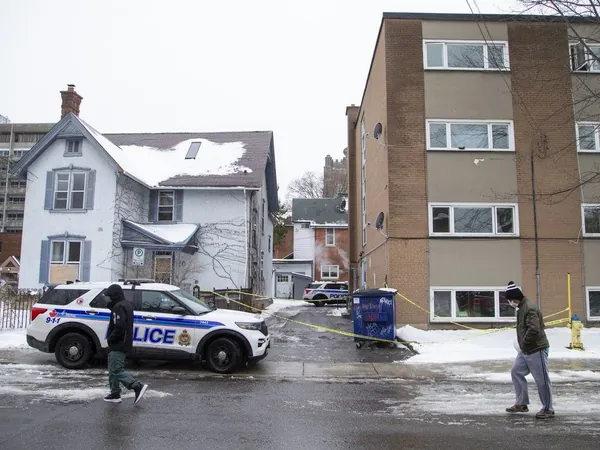
Sudanese Army Recaptures Khartoum Airport Amid Ongoing Civil War Turmoil
2025-03-26
Author: Charlotte
In a significant turning point in the brutal civil war that has ravaged Sudan for nearly two years, the Sudanese army has successfully recaptured Khartoum airport from the notorious Rapid Support Forces (RSF). This strategic gain comes as part of a broader military campaign aimed at reclaiming territory lost to the RSF, which has dominated the capital since the onset of conflict in April 2023.
General Mohamed Abdel Rahman al-Bilawi, who is leading operations in eastern Khartoum, confirmed the securement of the airport, stating that the army anticipates clearing the remaining RSF fighters from the area by the end of the day. This victory follows the army's recent recapture of the presidential palace and key state institutions previously under RSF control.
As the fighting escalates, hundreds of thousands have tragically lost their lives, with millions more displaced from their homes. The RSF's influence has been felt nationwide, particularly in urban areas, where reports of mass looting, violence, and human rights abuses have emerged. Eyewitnesses in Khartoum have reported civilians celebrating the army's advances, a stark contrast to the grim realities under RSF occupation.
In addition to the airport, the army has recently taken control of critical infrastructure, including Manshiya Bridge, the last RSF-held bridge connecting Khartoum with its neighboring cities. They have also targeted military camps in Jebel Awliya, a known stronghold of RSF forces in southern Khartoum. Local residents have noted a retreat by RSF fighters towards this area, indicating potential shifts in the dynamics of power within the capital.
Despite these gains, the country remains on a knife's edge. The humanitarian situation is dire, with regions like Khartoum approaching famine conditions due to extensive looting and harsh restrictions on aid. Numerous reports of sexual violence and indiscriminate shelling of civilian neighborhoods have surfaced, raising alarms among human rights organizations.
The Sudanese military’s move to retake the capital is a substantial military achievement, but the RSF still maintains control over much of the Darfur region, complicating the conflict. Both factions continue to receive backing from foreign powers, contributing to the prolonged struggle. International efforts to broker peace have thus far yielded minimal results, leaving the future of Sudan hanging in the balance.
As the violence continues, Sudan braces for what could be a long and arduous process towards stability, with countless lives and livelihoods hanging in the balance. Can Sudan break free from the chains of conflict, or are the brutal realities of war here to stay?









 Brasil (PT)
Brasil (PT)
 Canada (EN)
Canada (EN)
 Chile (ES)
Chile (ES)
 Česko (CS)
Česko (CS)
 대한민국 (KO)
대한민국 (KO)
 España (ES)
España (ES)
 France (FR)
France (FR)
 Hong Kong (EN)
Hong Kong (EN)
 Italia (IT)
Italia (IT)
 日本 (JA)
日本 (JA)
 Magyarország (HU)
Magyarország (HU)
 Norge (NO)
Norge (NO)
 Polska (PL)
Polska (PL)
 Schweiz (DE)
Schweiz (DE)
 Singapore (EN)
Singapore (EN)
 Sverige (SV)
Sverige (SV)
 Suomi (FI)
Suomi (FI)
 Türkiye (TR)
Türkiye (TR)
 الإمارات العربية المتحدة (AR)
الإمارات العربية المتحدة (AR)